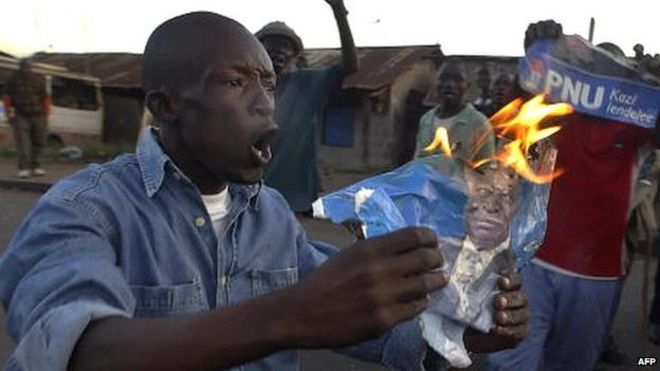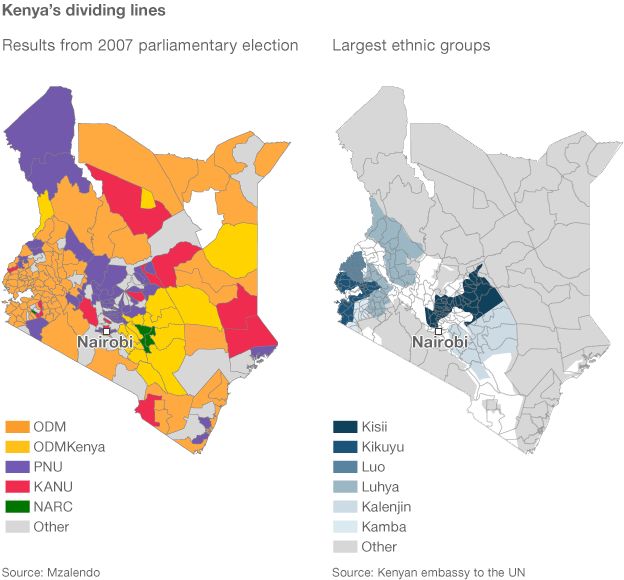Viewpoint: How tribalism stunts African democracy

Africa's democratic transition is back in the spotlight. The concern is no longer the stranglehold of autocrats, but the hijacking of the democratic process by tribal politics.
Kenya's 2007-08 post-election violence revealed the extent to which tribal forces could quickly bring a country to the brink of civil war.
The challenge to democracy in Africa is not the prevalence of ethnic diversity, but the use of identity politics to promote narrow tribal interests. It is tribalism.
There are those who argue that tribalism is a result of arbitrary post-colonial boundaries that force different communities to live within artificial borders.
This argument suggests that every ethnic community should have its own territory, which reinforces ethnic competition.
The last 20 years of Somalia have shown the dangers of ethnic competition and underscore the importance of building nations around ideas rather than clan identities.
Much attention over the last two decades has been devoted to removing autocrats and promoting multiparty politics.
But in the absence of efforts to build genuine political parties that compete on the basis of ideas, many African countries have reverted to tribal identities as foundations for political competition.
Leaders often exploit tribal loyalty to advance personal gain, parochial interests, patronage, and cronyism.
But tribes are not built on democratic ideas but thrive on zero-sum competition.
As a result, they are inimical to democratic advancement.
In essence, tribal practices are occupying a vacuum created by lack of strong democratic institutions.
Tribal interests have played a major role in armed conflict and civil unrest across the continent.

'Clever and calculating'
But the extent to which it blunts efforts to deepen democracy has received little attention. This is mainly because much of the attention has focused on elections.
According to US-based pro-democracy group Freedom House, 19 African countries were considered electoral democracies in 2012, down from 24 over the 2005-08 period.
These trends conceal the influence that tribal politics exerts on the democratic process.
It took Kenyan political parties nearly a decade to unite and defeat Daniel arap Moi's regime.
Leaders of the different opposition parties were primarily focused on pursuing their tribal interests rather than uniting around a common political programme.
They in effect played into the hands of the government in power that could divide them along tribal lines.
The opposition parties were unable to find common ground through coherent party manifestos.
According to research carried out on Kenya by Stephen Keverenge at the US-based Atlantic International University in 2008, 56% of 1,500 respondents did not know that their parties had manifestos.
The manifestos are generally issued late because much of the effort goes into building tribal alliances.
The new constitution of Kenya seeks to address the issue of ethnicity by ensuring that a president needs broad geographical support to be elected.
A winner must receive more than half of all the votes cast in the election and least 25% of the votes cast in each of more than half of the country's counties.
But tribal leaders are clever and calculating.
Comments
Post a Comment